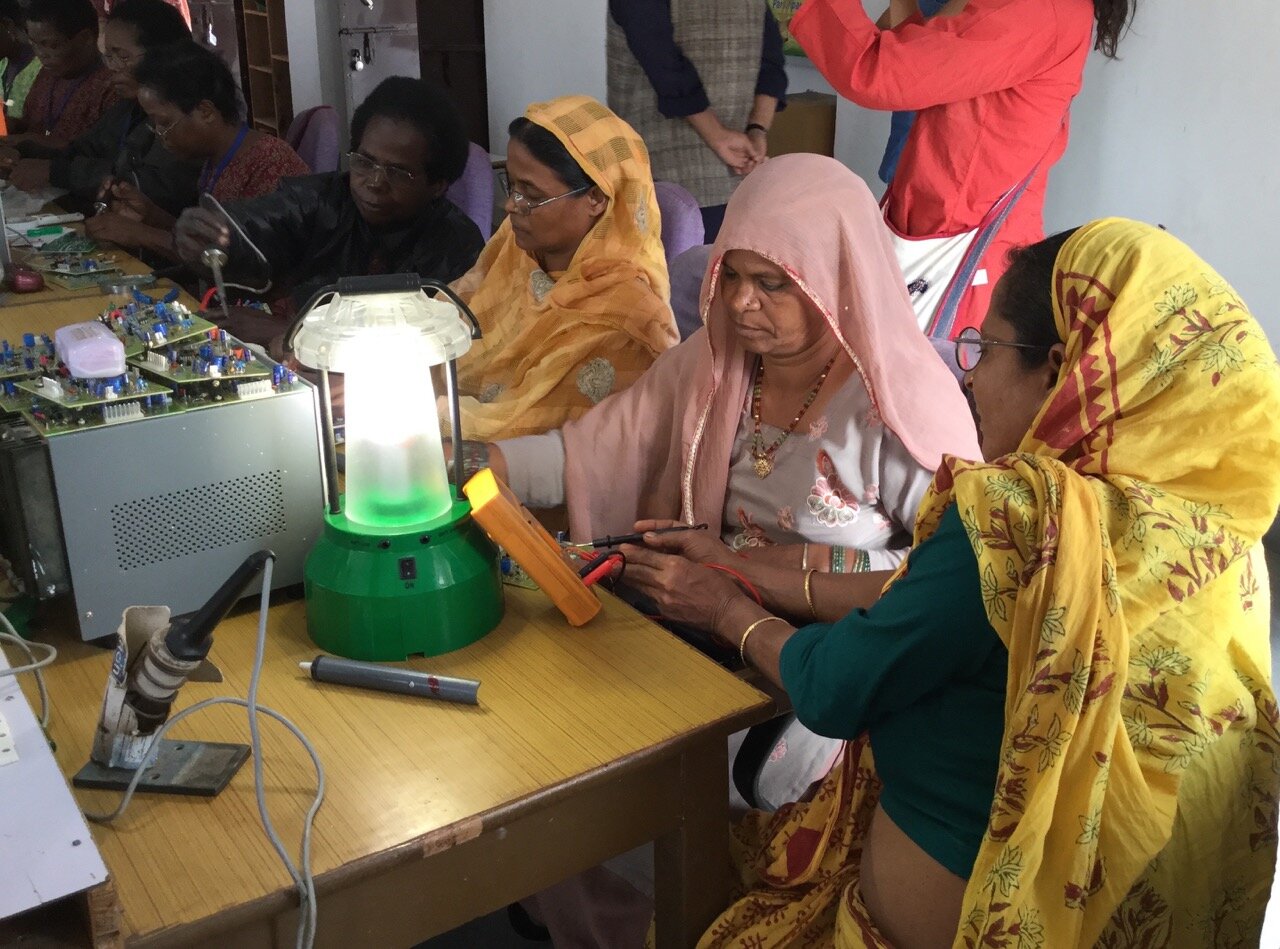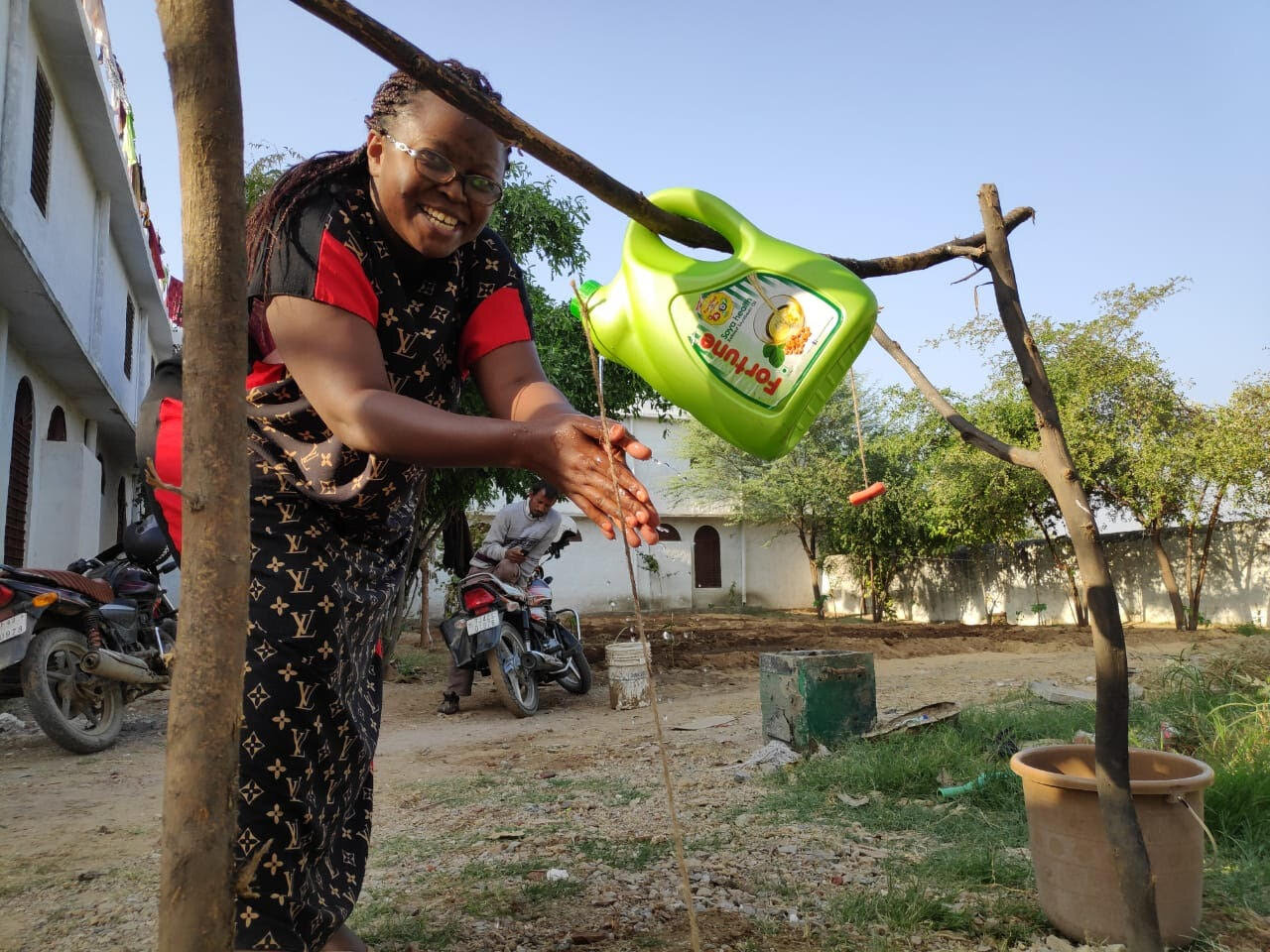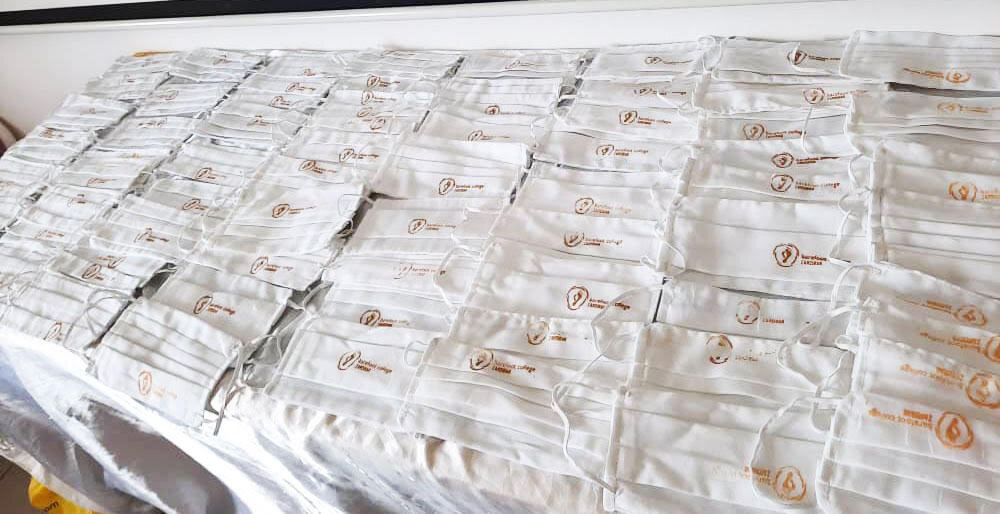My rural, uneducated grandmother was one of the biggest influences in my life. If you’ve read my memoir, Becoming a Dangerous Woman: Embracing Risk to Change the World, you know that she was the first to encourage me, even as a young girl, to take risks, to dream big, to envision a future beyond the small farm where I lived with her and my mother the first few years while my father was in the war. She was a great storyteller who had a special saying for every occasion, including one I have repeated often: “Well, honey, falling on your face is, at least, at forward movement.”
As a grandmother myself now, I try to be as inspiring to my 13 grandchildren and one great grandson (born during the pandemic!), and one of the ways I do this is by sharing stories of the extraordinary women and men I’ve gotten to meet, interview and document as a journalist and as an activist. In this post, with Mother’s Day just a week away, I’m celebrating the role that Solar Mamas, trained by Barefoot College, have in their communities — more important than ever right now.
Mothers and grandmothers are and always have been beacons of light during troubled times and Barefoot College has long celebrated this. By acknowledging and nurturing the important role of women as community leaders and changemakers, for almost 50 years, they have transformed rural communities by training rural, uneducated women as Barefoot Solar Engineers. To date, there are more than 3,600 Solar Mamas in 93 countries, who have returned to their villages to bring light in more ways than one.
Top: Pat Mitchell visiting Solar Mamas in training at the Barefoot College. (Images: Pat Mitchell)
These women, many of whom are grandmothers and all of whom are either illiterate or semi-literate, show enormous courage by leaving their villages — often for the first time ever — to train with Barefoot College for up to six months. At the end of their training, they are able to build, install and maintain solar home lighting systems, but that is just the start.
Every Solar Mama goes on to train at least one other woman, both in solar engineering and in Barefoot’s Enriche program, increasing the impact of these programs exponentially. They install clean, safe and renewable energy, so far bringing light to more than a million rural people. Their work reduces reliance on fossil fuels like kerosene by 98%, improves education outcomes by 31%, reduces carbon emissions and protects rural ways of life.
Forever elevated within their communities by the training they receive at Barefoot College, these courageous women now have an even bigger role to play during this Covid-19 pandemic. Each Solar Mama is perfectly placed to act as a force for change, ensuring that thousands of marginalized communities are already better equipped to handle the pressures of a global pandemic with improved connectivity, health resources and sanitation.And the Solar Mamas have begun new projects to deal with the pandemic, from the Mamas in Zanzibar, making handmade reusable masks, to the Mamas in Cameroon building ‘Tippy Taps’ to improve access to clean water and hand washing facilities.
Moreover, through Barefoot College’s unique Enriche curriculum and Women Prosper, applied skills including composting, effective sanitation methods and reusable sanitary napkin-making are proving to be vital skills during these uncertain times where supply chains are disrupted, supplies are low and people are scared.
During their training, each Mama receives and is trained to use a smartphone. They become skilled in digital literacy, financial inclusion and micro-enterprise business skills. The digital training that they receive during their time with Barefoot allows them to gather and share essential resources more widely, supporting themselves and their communities for years to come.
Now with the pandemic, using this same system, the Mamas are disseminating factual information for health and safety across their communities, reducing the spread of false stories that are flooding news feeds and helping to educate against potentially harmful misinformation. As sisters, grandmothers and matriarchs, they’re also informing women about their rights and helping to curb the rise in domestic violence that has emerged. As mothers, they can more easily protect their children with the knowledge they have received about their own legal rights.
Over the coming months, the business skills they have developed position them uniquely to thrive despite the expected decline in economic stability. Equipped with relevant livelihood efficacy, Barefoot College’s Solar Mamas are expected to become the new enterprise trailblazers, creating new niches where once there were economic gaps. Their newfound marketing sense will aid them in closing sales while saving wages to build their own bright futures. This will be an opportunity for women to rise into leadership roles and contribute to restabilizing local economies while permanently reducing gender disparities.
Barefoot College has created an incredible program. One that combines science and technology, rural expertise and knowledge seamlessly. Among other livelihoods Barefoot also supports a women’s collective that produces handmade/handwoven products, including the beautiful pashminas that I commissioned for the BADW (Becoming a Dangerous Woman) Benefit Collection, a curated group of products made by women with proceeds going to the nonprofits profiled in the book, including all the programs at Barefoot College.
Mamas in Zanzibar are sewing masks for the survival kits.
Those include the special Covid-19 related programs of Barefoot College aimed at mobilizing, educating and equipping their network of Solar Mamas to fight this virus and ensure long-term economic resilience. Barefoot College has also adapted quickly to act with its short term disaster relief response, creating monthly survival kits.
These kits include food, nutritional supplements, face masks and hand sanitizers (produced at the College), and soap — for villages that are in dire need of supplies. They also work closely with grassroots organizations and governments to ensure that all needs are met and that rural communities are not left behind in this crisis.
Here's how you can help: You can donate to support their Covid-19 survival kits — and I hope that you will consider it. But given that Mother's Day is coming up, you can also do something else!
One of the projects at Barefoot College started in 2017 is B.Barefoot, a not-for-profit social company that empowers women in business. In addition to coffee, honey and solar products, the B.Barefoot collective includes a number of women producing beautiful pashmina scarves and hand-printed napkins woven from the wool of goats kept at the college.
When I released my memoir, Becoming a Dangerous Woman, in October last year, I launched the BADW Shop as an opportunity to ‘purchase with purpose.’ All items in the Dangerous Woman Benefit Collection are made by female-led enterprises as sustainably as possible. My hope was to increase awareness of and support for creative design and entrepreneurial enterprises led by women.
100% of the net proceeds from the BADW Shop supports the work of the nonprofit enterprises profiled in my memoir, including the Barefoot College. In the next two weeks, we will donate all sales to the College.
The Dangerous Embroidered Cashmere Pashminas by B.Barefoot are handwoven in India.
My grandmother was certainly my first dangerous woman, encouraging me to be brave and fearless and to find my purpose and follow it. Mother’s Day is an opportunity to express gratitude to all mothers and grandmothers in our lives and the ones transforming lives by all they do in communities everywhere.
With gratitude,
— Pat










